Creating a long-term care plan can feel overwhelming, but it doesn't have to be! In this article, we'll guide you through the essentials of developing a personalized care plan that meets the unique needs of patients. With a focus on communication and collaboration, we'll discuss key components that foster a supportive environment for you and your loved ones. Ready to dive in? Let's explore how you can create a comprehensive care strategy that works for everyone involved!

Patient Information
The long-term care plan for the patient, encompassing essential details for continuity of care, should include the patient's full name, date of birth, and medical history, including chronic conditions such as diabetes or hypertension. Additionally, significant events in the patient's health journey, like past surgeries or hospitalizations, must be documented for reference. Key contact information for family members or caregivers, including their names and phone numbers, is crucial for communication regarding care decisions. Furthermore, any current medications, including dosages and administering schedules, require thorough attention to prevent complications and ensure adherence. Annotations on dietary preferences and restrictions are vital, particularly for those with specific conditions or allergies. This comprehensive framework facilitates tailored care that meets the unique needs of the patient, ensuring a holistic approach to health and well-being.
Medical History Summary
A comprehensive medical history summary serves as a vital document for long-term care planning. This summary includes critical information such as past diagnoses, treatments, and surgeries that have occurred since initial patient assessment at the healthcare facility. Chronic conditions such as diabetes mellitus, hypertension, and arthritis are often highlighted due to their impact on daily living activities. Relevant medications prescribed, such as metformin for diabetes and lisinopril for hypertension, are listed to monitor potential side effects and interactions. Notable events, including hospitalizations or complications like infections or falls, provide insight into the patient's health trajectory. Family medical history is also documented, as genetic predispositions may influence future health concerns. Each detail works collaboratively to form a holistic view of the patient's health, enabling tailored interventions that enhance long-term well-being.
Care Goals and Objectives
Long-term care plans for patients, especially those with chronic conditions like diabetes, emphasize personalized care goals and objectives tailored to the individual's needs. Goals may include achieving stable blood sugar levels, which involves regular monitoring and dietary modifications. Objectives could include educating patients on healthy eating habits, scheduling routine check-ups every three months at local healthcare facilities, and encouraging daily physical activity, such as walking for at least 30 minutes. Additionally, ensuring adherence to medication schedules, which might involve the use of reminders or pill organizers, plays a crucial role. Success in these areas enhances quality of life and minimizes complications associated with chronic illness.
Treatment Plan and Interventions
A comprehensive long-term care plan for patients with chronic conditions, such as diabetes or heart disease, incorporates various treatment strategies aimed at maximizing health outcomes. Regular monitoring of blood glucose levels, ideally four times daily, is essential for diabetic patients to maintain optimal blood sugar control and prevent complications. Scheduled physical therapy sessions, at least twice a week, can enhance mobility and reduce pain for those with musculoskeletal disorders, such as arthritis. Nutritional counseling, focusing on a balanced diet rich in whole grains and lean proteins, is crucial for patients considered at risk for malnutrition. Medication management involves assessing adherence to prescribed regimens, including antihypertensives and statins, and scheduling quarterly follow-ups to adjust dosages as needed. Additionally, regular psychological assessments can help address mental health concerns, such as depression, ensuring that patients receive emotional support throughout their treatment journey.
Care Team Roles and Responsibilities
In a comprehensive long-term care plan, the Care Team plays a crucial role in ensuring holistic support for patients with chronic conditions or disabilities. The Care Coordinator, typically a nurse or social worker, manages communication among team members and oversees the patient's progress, ensuring that their needs are met efficiently. The Primary Physician, often a specialist in geriatrics, conducts regular assessments (typically bi-monthly), adjusting treatment plans as necessary based on medical evaluations and lab results. Pharmacists contribute by reviewing medication regimens for potential interactions and advising on side effects; regular reviews occur every three months. Social Workers support patients emotionally and facilitate community resource access, conducting needs assessments semi-annually. Rehabilitation Therapists, such as physical and occupational therapists, design personalized exercise programs aimed at improving mobility and daily living skills, with scheduled sessions often occurring multiple times a week. Lastly, Home Health Aides offer daily assistance with personal care needs, helping maintain independence in the patient's living environment. Together, this multidisciplinary team works collaboratively to enhance the patient's quality of life through tailored care strategies.
Letter Template For Patient Long-Term Care Plan Samples
Letter template of individualized care strategy for chronic patient management
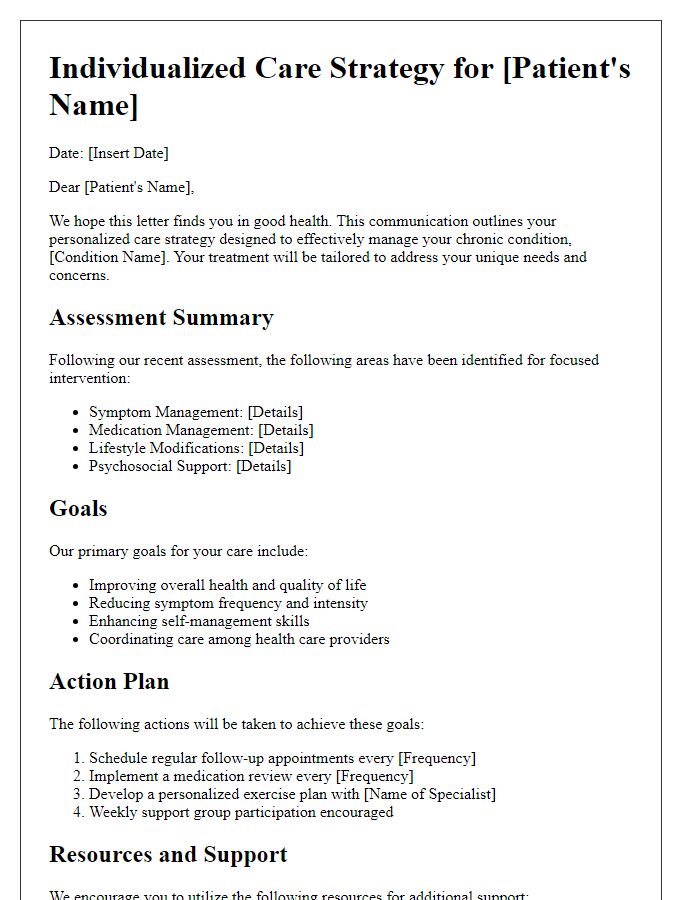
Letter template of tailored supportive care outline for ongoing treatment
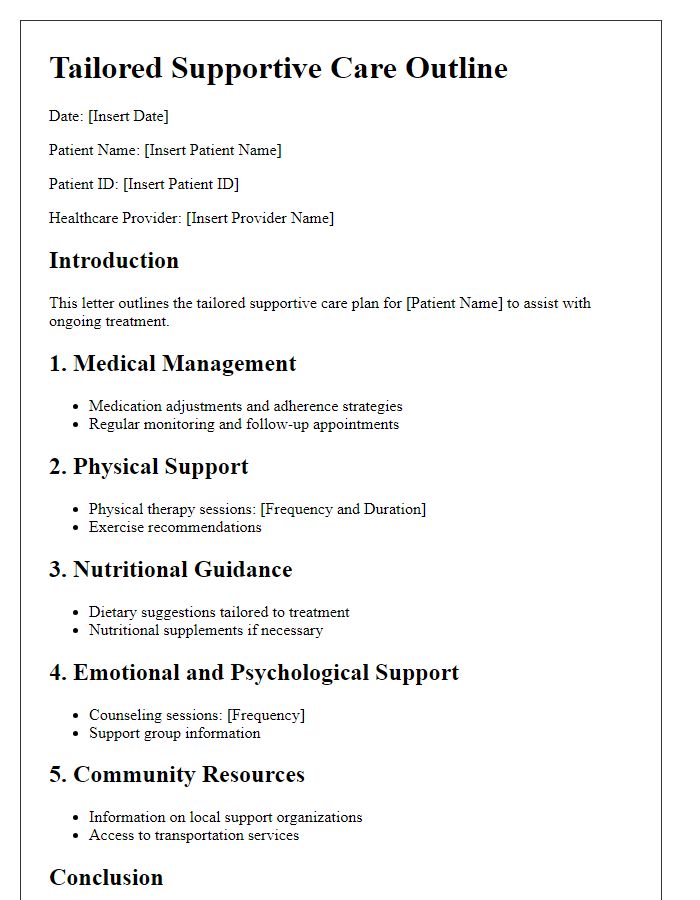
Letter template of coordinated care approach for managing patient conditions
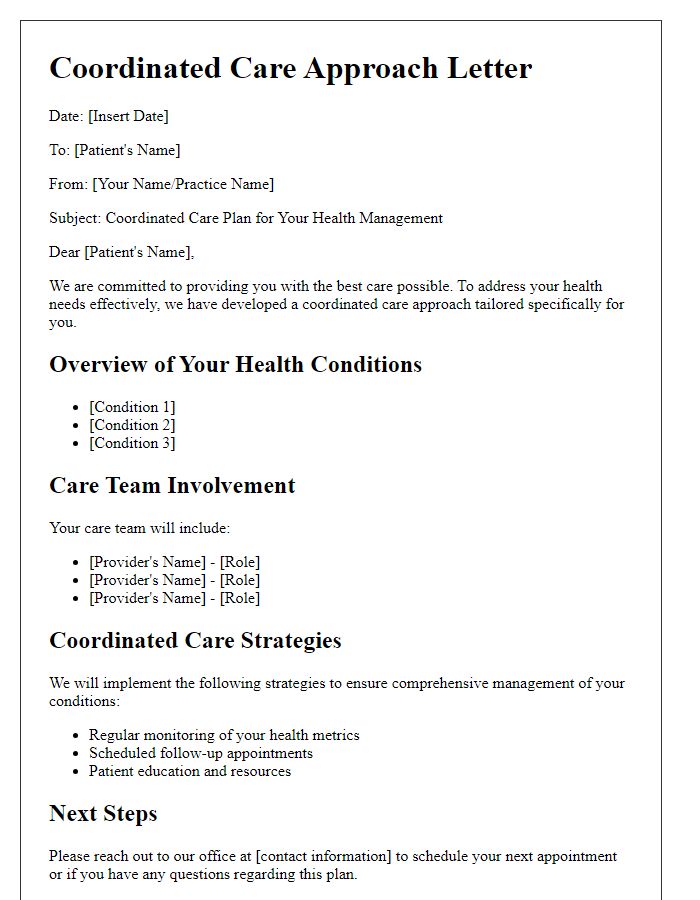
Letter template of goal-oriented health plan for patient's sustained recovery
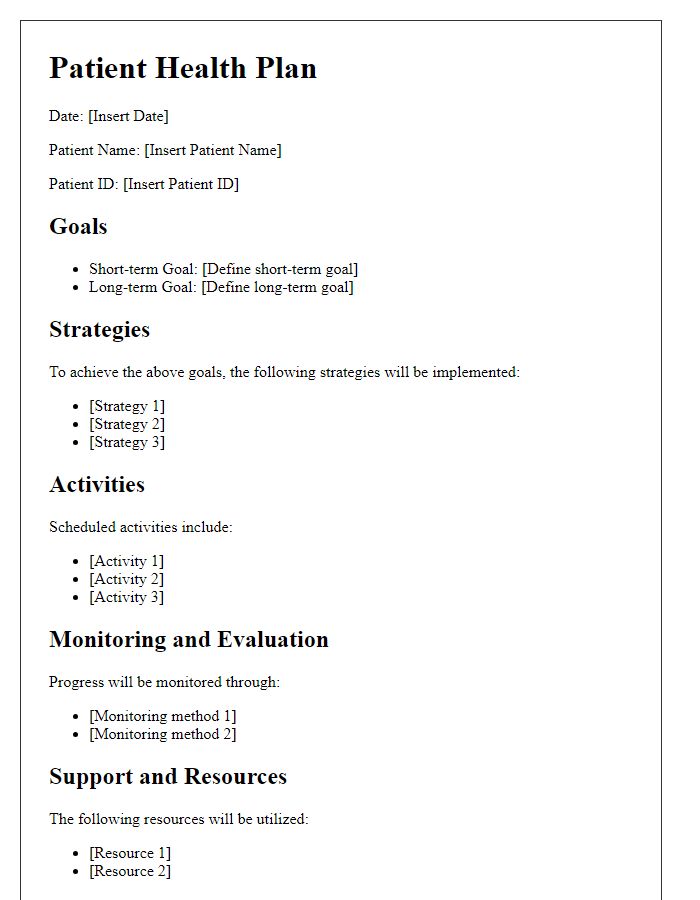

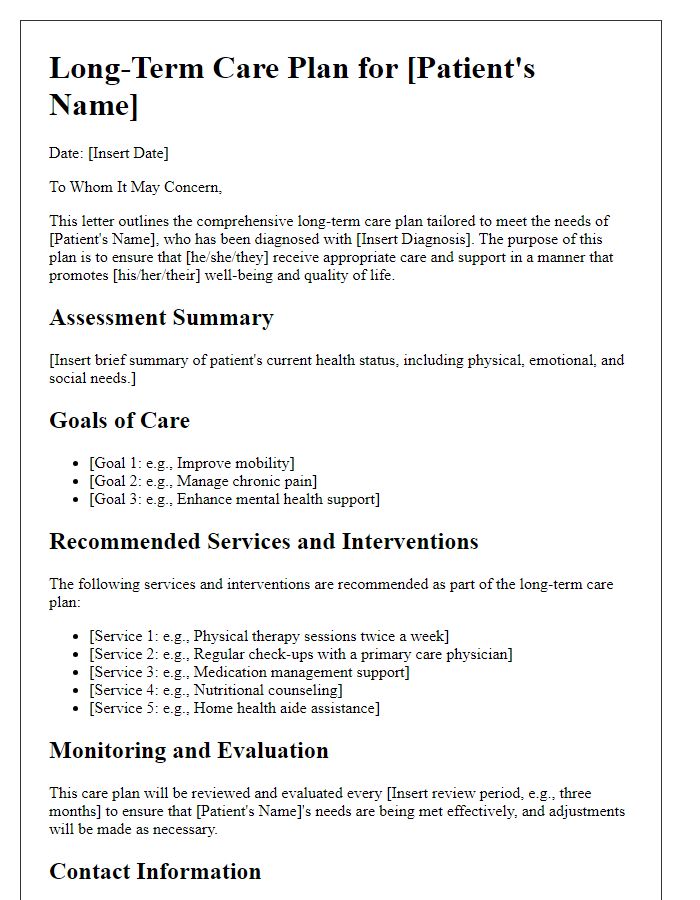
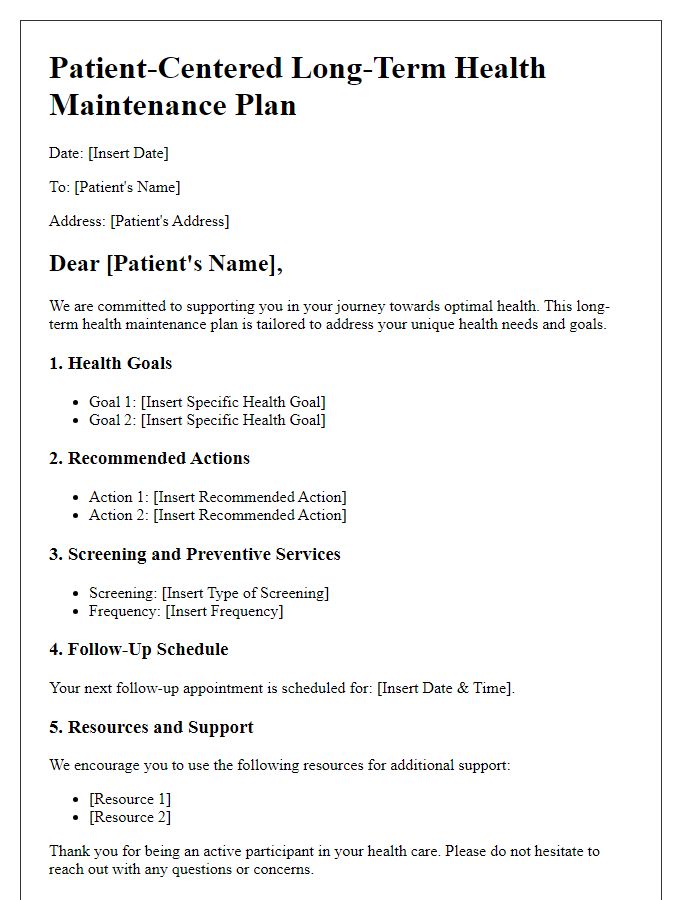
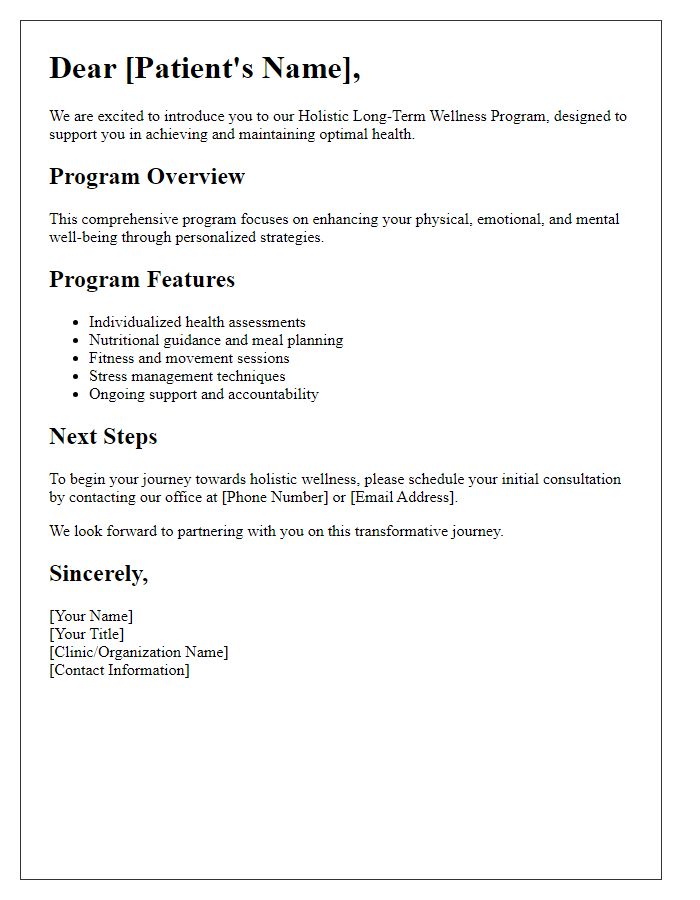
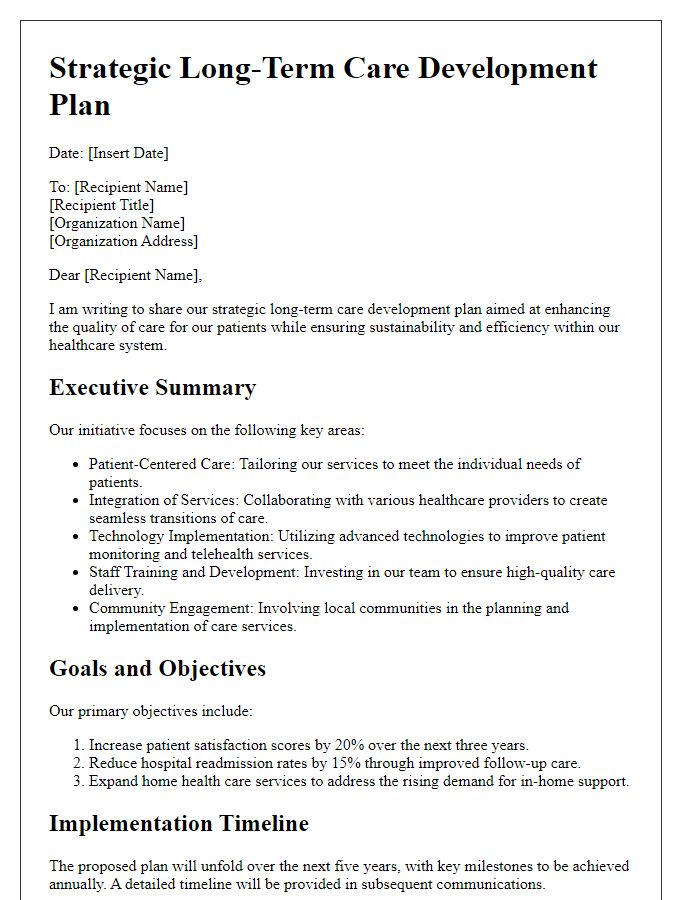
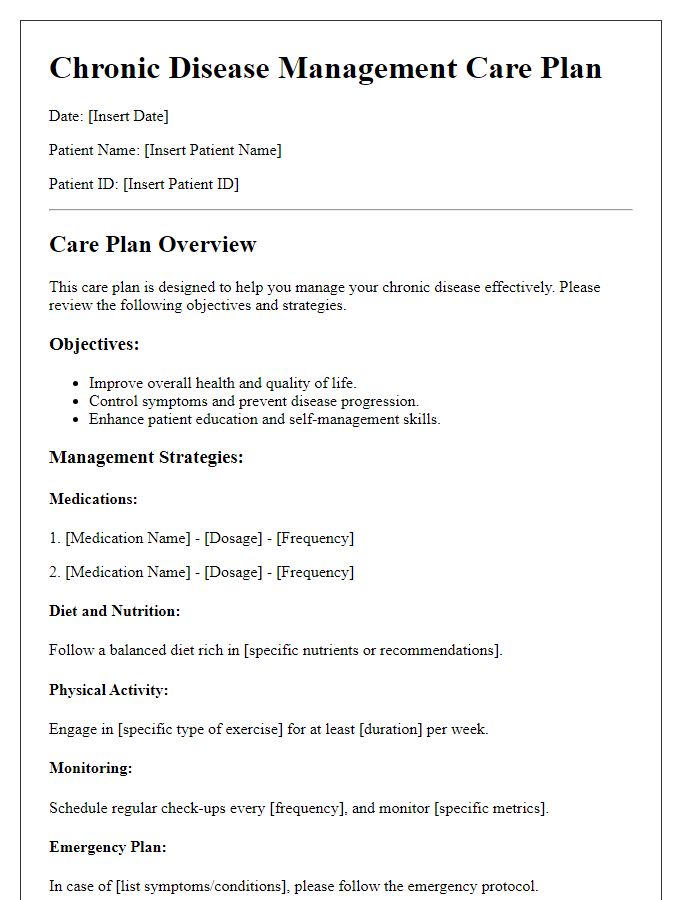
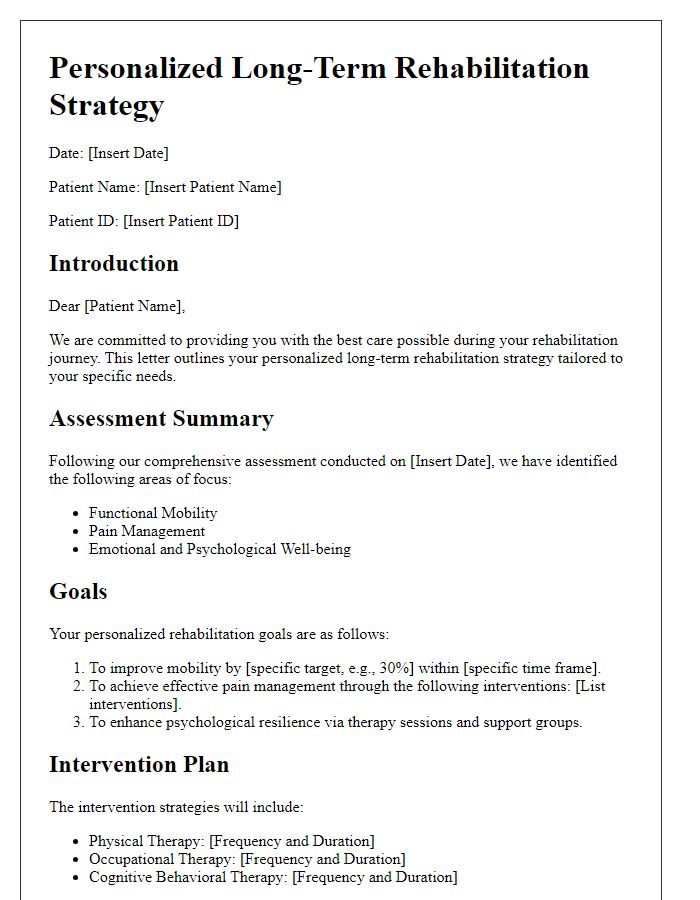


Comments